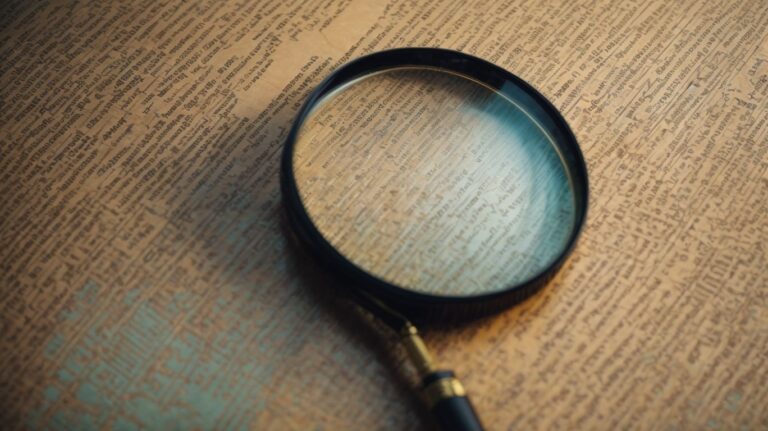Dr. Phil, a well-known television personality and psychologist, has found himself embroiled in controversy surrounding the suspension of his psychology license. Allegations against Dr. Phil have raised questions about his ethical practices and professional standing in the psychology community.
In this article, we will delve into the details of the controversy, explore the repercussions of losing a psychology license, and examine Dr. Phil’s response to the allegations. Join us as we unravel the ethical implications and lessons to be learned from this controversial situation.
Contents
- 1 Who Is Dr. Phil?
- 2 What Is the Controversy Surrounding Dr. Phil?
- 3 What Happened to Dr. Phil’s Psychology License?
- 4 What Are the Repercussions of Losing a Psychology License?
- 5 What Is Dr. Phil’s Response to the Controversy?
- 6 What Can We Learn from This Controversy?
- 7 What Are the Ethical Implications of This Controversy?
- 8 Frequently Asked Questions
- 8.1 Why has Dr. Phil’s psychology license been revoked?
- 8.2 What specific actions led to the revocation of Dr. Phil’s license?
- 8.3 When did the controversy surrounding Dr. Phil’s license first come to light?
- 8.4 Has Dr. Phil ever addressed the revocation of his psychology license?
- 8.5 Is Dr. Phil still able to practice psychology without a license?
- 8.6 What impact has the controversy had on Dr. Phil’s career?
Who Is Dr. Phil?
Dr. Phil, whose full name is Phillip Calvin McGraw, is a well-known psychologist, television personality, and host of the self-titled TV show ‘Dr. Phil.’ He is recognized for his expertise in mental health advice and counseling services, addressing a wide range of topics from unruly teens to cheating spouses.
Dr. Phil’s career trajectory began with his Ph.D. in clinical psychology from the University of North Texas. His background includes years of experience working with patients in a clinical setting, which laid the foundation for his TV persona. Over the years, he has gained fame for his no-nonsense approach and tough love style, often diving into tough conversations with guests, including notable figures like Britney Spears and Oprah Winfrey. With a psychology board license and ethical obligations at the forefront, Dr. Phil’s show uses a mix of therapy, mediation, and personal accountability to tackle complex issues.
What Is the Controversy Surrounding Dr. Phil?
Dr. Phil has faced a significant amount of controversy over the years due to various allegations and incidents surrounding his practice and public statements. His comments on sensitive issues, including mental health and personal struggles, have often sparked outrage and debate.
One of the major controversies that have plagued Dr. Phil’s reputation is the allegation of exploiting guests for sensationalism on his show. Critics have accused him of prioritizing ratings over the well-being of individuals appearing on his program.
Dr. Phil’s privacy practices have also come under fire, with concerns raised about the ethicality of sharing personal information of guests for entertainment purposes. This has led to intense media scrutiny and heightened public perception about the show’s authenticity.
What Are the Allegations Against Dr. Phil?
Several allegations have been leveled against Dr. Phil, ranging from unethical conduct to providing misleading or harmful advice to guests on his show.
One of the key allegations is regarding the exploitation of vulnerable individuals for the sake of entertainment, where guests’ mental health challenges may have been sensationalized rather than approached with sensitivity and genuine concern.
There have been claims that Dr. Phil’s advice lacks proper psychological foundation, leading to potential harm rather than improvement in the guests’ conditions.
These allegations raise significant questions about the ethical boundaries in the psychology profession and the responsibility of mental health professionals in the public eye.
What Happened to Dr. Phil’s Psychology License?
Dr. Phil’s psychology license came under scrutiny by the California Board of Psychology, leading to significant consequences for his practice and reputation.
After receiving numerous complaints regarding Dr. Phil’s professional conduct, the Board initiated a thorough investigation into his licensing status. Concerns were raised about potential breaches of professional ethics and the appropriateness of his therapeutic techniques.
Following a thorough review, it was revealed that there were irregularities in some of Dr. Phil’s practices that raised serious questions about his adherence to industry standards. As a result, the Board made the difficult decision to temporarily suspend his psychology license pending further inquiries.
Why Was Dr. Phil’s License Suspended?
Dr. Phil faced license suspension due to allegations of misconduct, breach of ethical obligations, and violations of privacy practices that raised serious concerns within the psychology community and among his patients.
One of the primary reasons leading to the suspension of Dr. Phil’s psychology license was the exploitation of vulnerable individuals for sensationalism on television. This unethical behavior not only violated established patient rights but also breached the trust invested in a licensed psychologist. There were instances of inappropriate disclosures of sensitive patient information without consent, a clear violation of patient confidentiality laws. These incidents collectively portrayed a lack of professional accountability and disregarded the foundational principles of the psychology profession.
Did Dr. Phil Ever Get His License Back?
Despite the challenges he faced, Dr. Phil successfully regained his psychology license after meeting the requirements set by the licensing authority and demonstrating his commitment to upholding professional standards.
Initially,
- Dr. Phil submitted a detailed application for license restoration, outlining the steps he had taken to rectify the issues that led to the suspension. This included completing additional training in ethics and attending regulatory compliance seminars to stay updated with the evolving industry standards.
- He engaged in regular consultations with a mentor in the field to ensure ongoing adherence to the ethical guidelines and best practices. These proactive measures not only showcased Dr. Phil’s dedication to professional growth but also highlighted his willingness to learn from past mistakes and improve his practice.
What Are the Repercussions of Losing a Psychology License?
Losing a psychology license can have severe consequences on a practitioner’s career, reputation, and legal standing, affecting their ability to practice, interact with patients, and maintain credibility in the field.
Individuals who have their psychology license revoked may face challenges in finding new employment opportunities within the field, as this mark on their professional record can raise red flags for potential employers.
Rebuilding trust within the community and among colleagues can be an uphill battle, as individuals may be viewed with skepticism or mistrust due to the license revocation.
The financial implications of losing a psychology license can be substantial, with potential loss of income and the need to cover legal expenses, further adding to the stress and pressure on the individual.”
How Does Losing a License Affect a Career?
The loss of a psychology license can significantly impact a practitioner’s career prospects, limiting their ability to work in the field, attract patients, and participate in professional activities.
When a psychologist loses their license, it not only affects their professional standing but also brings about practical challenges. They may struggle to find employment opportunities within the field, as many positions require a valid license for practice. The financial strain can be immense, with the loss of income from their primary source of work. Unraveling the Controversy: Dr. Phil and his Lost Psychology License
Reputationally, the consequences may be far-reaching. Patients may lose trust in a psychologist who has had their license revoked, leading to a decline in client referrals and a tarnished public image.
What Are the Legal Consequences of Losing a License?
The legal ramifications of losing a psychology license can extend to civil penalties, legal actions, and potential lawsuits from affected patients or regulatory bodies seeking accountability for misconduct or malpractice.
In case of a revoked psychology license, practitioners may face severe financial repercussions, such as hefty fines imposed by regulatory agencies or legal entities. These fines can vary substantially depending on the severity of the misconduct and the impact on patients’ well-being. Individuals may encounter challenges in finding new employment opportunities in the field, given the tarnished reputation resulting from a revoked license.
What Is Dr. Phil’s Response to the Controversy?
Dr. Phil has publicly addressed the allegations and controversies surrounding his practice, offering explanations, clarifications, and insights into his perspective on the issues raised by critics and the media.
When faced with scrutiny, Dr. Phil has maintained a strategic approach in handling the negative publicity, emphasizing transparency and accountability. His statements reflect a firm stance on the importance of ethical practices in his work, aiming to regain trust and credibility with his audience. By engaging with the criticisms head-on, he has demonstrated a willingness to address concerns and learn from feedback, displaying a commitment to continuous improvement in his methods.
Has Dr. Phil Addressed the Allegations?
Dr. Phil has directly addressed the specific allegations leveled against him, providing explanations, context, and rebuttals to counter the claims made by his detractors.
Throughout his career, Dr. Phil has encountered various challenges to his reputation, navigating them with astute defense statements and strategic reputation management. By addressing each allegation head-on, he has demonstrated a proactive approach to preserving his public image. Through these efforts, he has managed to maintain a favorable public perception despite facing adversity. His ability to effectively communicate his side of the story has played a crucial role in shaping the narrative surrounding the controversies he has faced.
What Is Dr. Phil’s Current Standing in the Psychology Community?
Dr. Phil’s current standing within the psychology community remains a topic of debate and scrutiny, with contrasting views on his contributions, methods, and impact on the field of mental health.
While some experts commend Dr. Phil for popularizing psychology through his television show and bringing awareness to mental health issues on a public platform, others criticize him for oversimplifying complex psychological concepts and prioritizing entertainment value over scientific rigor. Professional judgment and industry recognition regarding his role in psychology vary significantly within the field.
Additionally, public reception of his advice and interventions often sparks discussions on the boundaries between entertainment, therapy, and ethical practices in the psychological realm.
What Can We Learn from This Controversy?
The controversy surrounding Dr. Phil offers valuable insights into the ethical responsibilities, professional boundaries, and media dynamics that shape the practice of psychology and the dissemination of mental health advice.
One of the key ethical considerations highlighted by the Dr. Phil controversy is the importance of maintaining confidentiality and privacy when dealing with sensitive information shared by individuals seeking help.
The blurred lines between entertainment and therapy in media platforms bring to light the need for psychologists to navigate these dual roles carefully to uphold their professional standards.
In a world where media influence can amplify ethical dilemmas, psychologists must prioritize the well-being of their clients while also recognizing the potential impact of their public persona on shaping public expectations of mental health professionals.
What Are the Ethical Implications of This Controversy?
The controversy surrounding Dr. Phil raises important ethical questions about the responsibilities of psychologists in the public eye, the boundaries of patient care, and the consequences of providing misleading or harmful advice.
Dr. Phil, as a prominent figure in the field of psychology, holds significant influence over his audience. This influence comes with a crucial responsibility to uphold ethical standards and prioritize patient well-being. Recent controversies have highlighted instances where Dr. Phil’s actions have potentially crossed ethical boundaries, leading to concerns about the impact on the psychology profession as a whole.
One of the key ethical dilemmas at play is the balance between providing entertainment value for the public and maintaining the integrity of psychological practices. Professional integrity should always take precedence over sensationalism or ratings, especially when dealing with vulnerable individuals seeking help.
Frequently Asked Questions
Why has Dr. Phil’s psychology license been revoked?
According to the American Psychological Association, Dr. Phil’s license was revoked due to unethical conduct and unprofessional behavior in the early years of his practice.
What specific actions led to the revocation of Dr. Phil’s license?
The State Board of Examiners of Psychologists found that Dr. Phil had engaged in inappropriate dual relationships with his clients, including business and personal relationships, which is a violation of ethical standards.
When did the controversy surrounding Dr. Phil’s license first come to light?
The controversy surrounding Dr. Phil’s license first came to light in 2001, when a former patient filed a complaint against him for unethical conduct.
Has Dr. Phil ever addressed the revocation of his psychology license?
Yes, Dr. Phil has publicly acknowledged the revocation of his license and expressed regret for his past actions. He has also stated that he has learned from his mistakes and has grown as a professional.
Is Dr. Phil still able to practice psychology without a license?
No, Dr. Phil is not able to practice psychology without a license. He is currently licensed as a clinical psychologist in Texas, but is not licensed in any other states.
What impact has the controversy had on Dr. Phil’s career?
Despite the controversy surrounding his lost psychology license, Dr. Phil has continued to have a successful career as a television personality and public figure. However, he is not able to practice psychology or provide therapy to clients.





